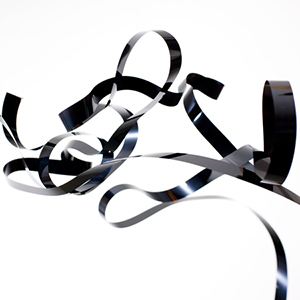Objekt Flatland
From its opening blast of shattering “glass,” it’s clear that Flatland, the debut LP by […]

From its opening blast of shattering “glass,” it’s clear that Flatland, the debut LP by Berlin-based artist Objekt (a.k.a. TJ Hertz), means to make a statement. That initial note is a showoff-y bit of sound design that would sit as a highlight in the middle of a lesser album, but Hertz has a high pedigree; he’s worked for Native Instruments and previously self-released a highly regarded series of 12″s, among other accolades, and PAN, Flatland‘s backing label, is nothing if not esteemed. Some artists like to let their machines think for themselves, letting sounds blur together and emphasizing accidents; Hertz, however, is a control freak, and Flatland showcases this with intensity. As such, it would be difficult to say anything detrimental about the sheer skill required in making it. This is the kind of release that’s going to make a lot of producers feel inadequate.
A decent comparison might be found in the glossy concrète of Oneohtrix Point Never’s R Plus Seven, or in an act like Autechre, which tends to bury its hooks in complicated three-dimensional arrangements. Flatland is upfront and extremely polished, but as with those artists, its memorable moments come less from sustained grooves than brief, catchy bursts. There are exceptions in the Powell-esque (i.e. sort of techno-rock) chug of “Strays” and the bouncy “Dogma,” which reminds of some Cut Hands moments, like “Nine Night” from Black Mamba, but is ultimately smoother and features mechanical blips. “One Stitch Follows Another,” toward the LP’s end, is another highlight; its submerged pulse is broken up by interjections of synthetic noise, but its overlay of beautiful bell patterns pushes it into elegiac territory.
These interruptions, or deliberate quirks, are central to Flatland, an album that recalls many other artists but is resolutely not a facsimile. Consider “First Witness,” which is emptied out like Wiley’s eski instrumentals, but comes laced with strange vocal pitch manipulations that resemble an alien language, or “Agnes Apparatus,” a song that sounds like a low-key, electro Sun Ra, its simple metallic melody drifting in space. The microrhythms and acid B-boy-isms of the tightly wound “Ratchet,” meanwhile, should please fans of “Ganzfeld,” a track Objekt released on a split earlier in the year that was quite possibly his funkiest moment to date.
Could Flatland be called clinical? Probably. As with any album so immaculately hyper-detailed, it is constantly changing focal points—not in the sense that it is particularly ADHD, but more that its buried charms reveal themselves after the initial thrills of tracks like “Strays” and “Dogma” have passed. It is technically dazzling, but one wonders how deep its well will run moving forward. It isn’t the only gleaming, high-definition LP released this year, which increasingly feels like a watershed moment for intricate computer music. If anything, Flatland will stand as emblematic of an overall shift toward finicky sound design after several years of lower-fidelity material taking the spotlight. Most of Objekt’s older recordings sound blunt and obvious in comparison to Flatland; it will be interesting to hear how much farther into chopped-up abstraction he can push his sound.

